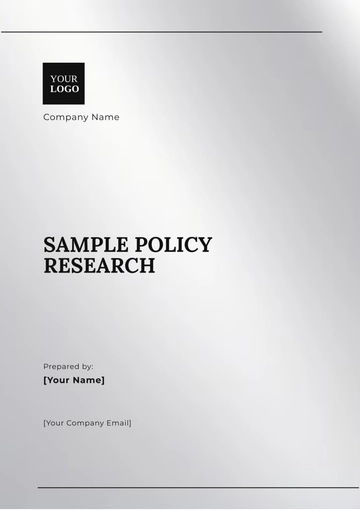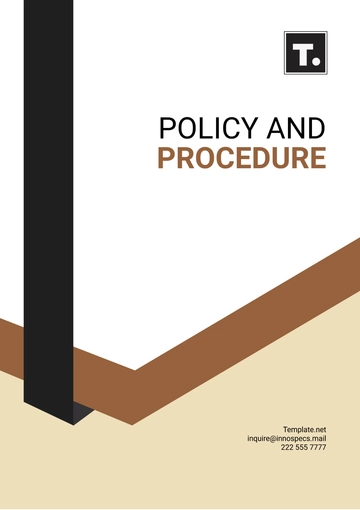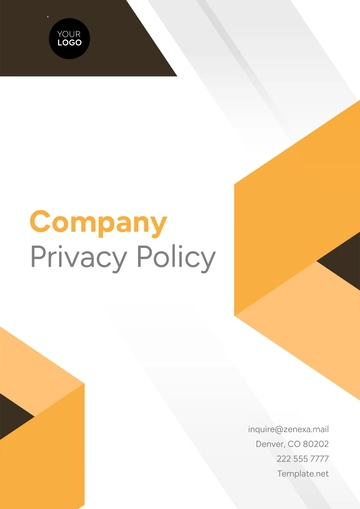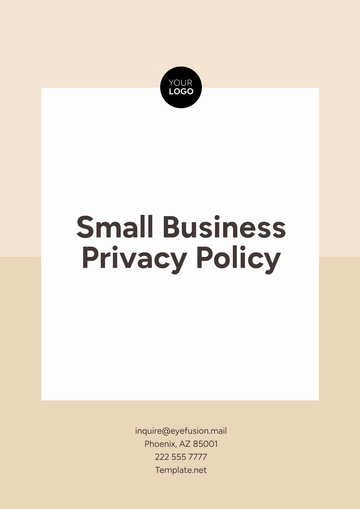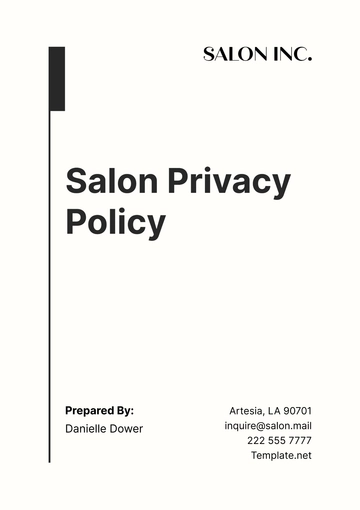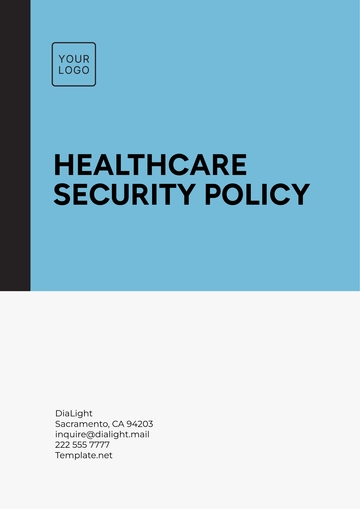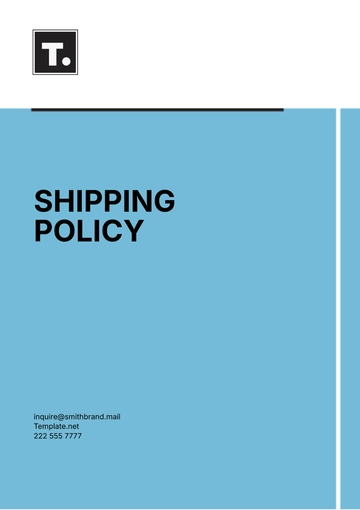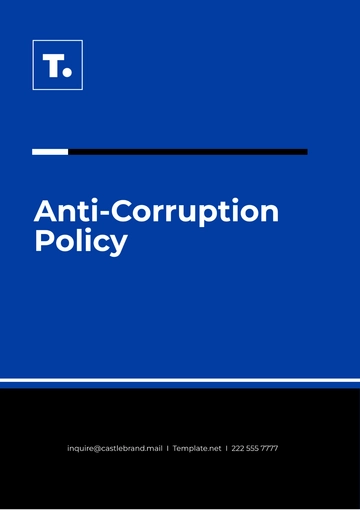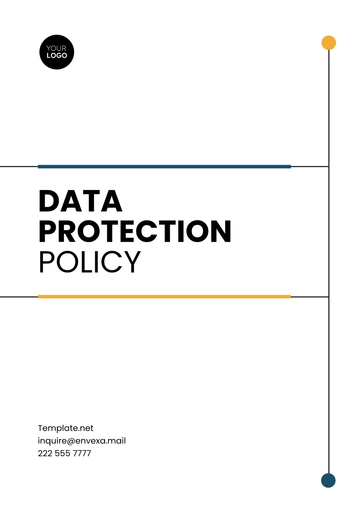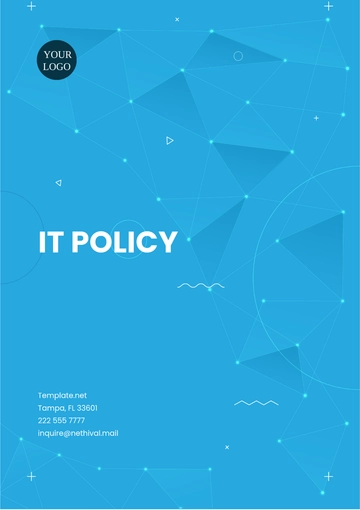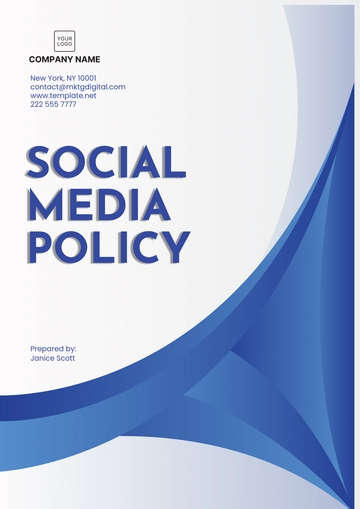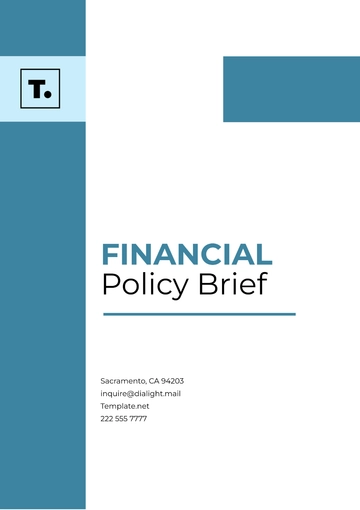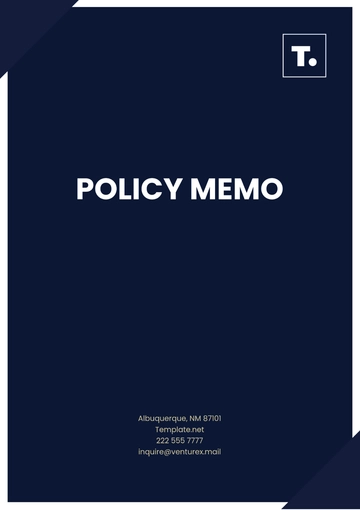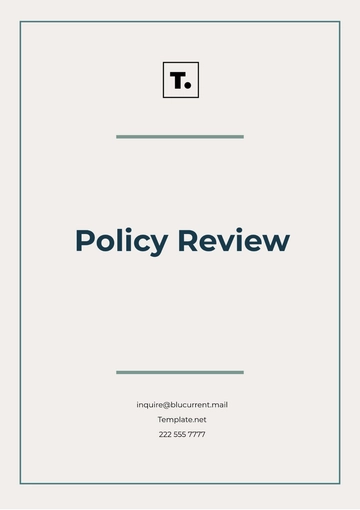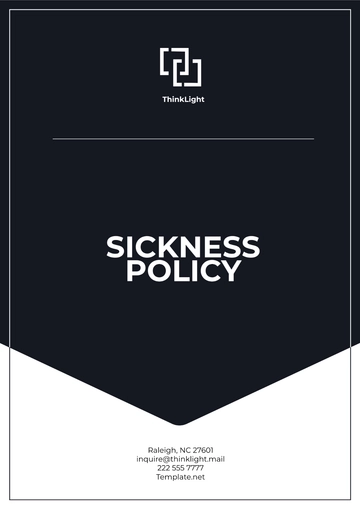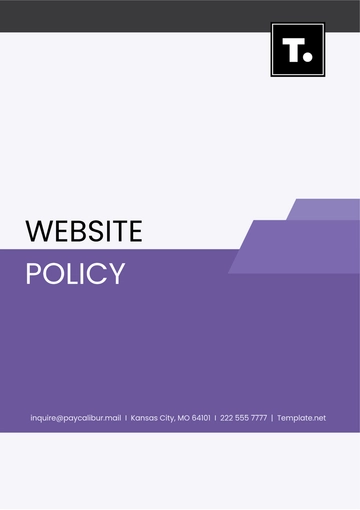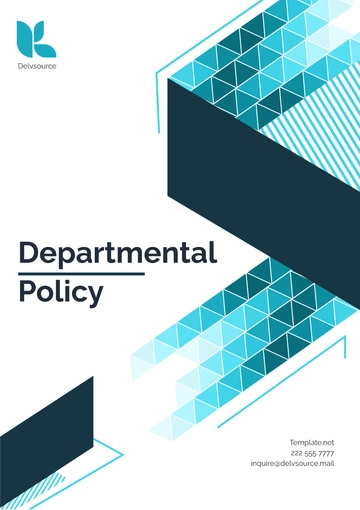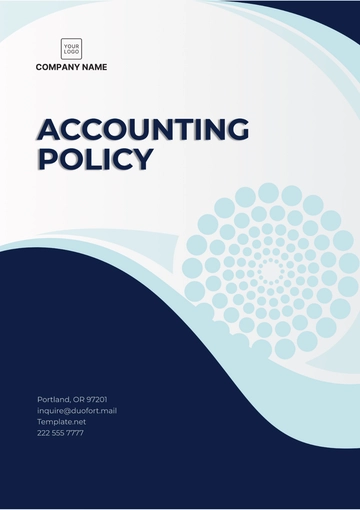Free Sales Policy for Sharing Data Internally
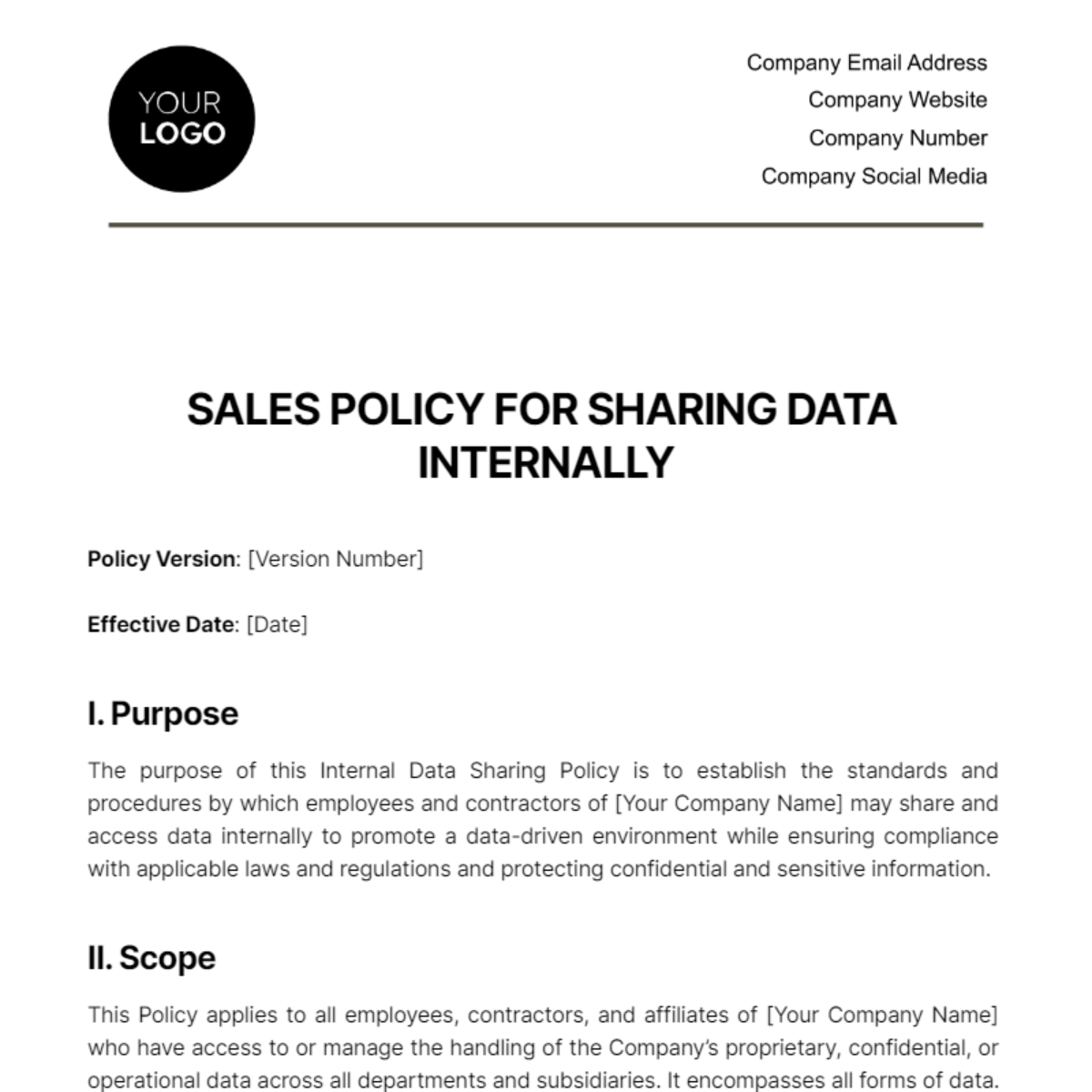
Policy Version: [Version Number]
Effective Date: [Date]
I. Purpose
The purpose of this Internal Data Sharing Policy is to establish the standards and procedures by which employees and contractors of [Your Company Name] may share and access data internally to promote a data-driven environment while ensuring compliance with applicable laws and regulations and protecting confidential and sensitive information.
II. Scope
This Policy applies to all employees, contractors, and affiliates of [Your Company Name] who have access to or manage the handling of the Company’s proprietary, confidential, or operational data across all departments and subsidiaries. It encompasses all forms of data.
III. Data Sharing Principles
Data is to be disseminated internally strictly on a need-to-know basis. Such sharing is to be justified by job function requirements and must be done with the intent to enhance productivity, make informed decisions, or comply with internal processes and policies.
Shared data must maintain the highest standards of integrity and quality. It is imperative that the data must be accurate and has been consistently reviewed and validated to prevent any misuse or misinterpretation that could lead to flawed business decisions or operational inefficiencies.
The internal distribution of data must adhere strictly to all applicable data protection and privacy laws, industry regulations, and company-specific data governance policies. Special attention is to be given to Personally Identifiable Information (PII), sensitive personal data, and other categories of protected information which require rigorous handling procedures to prevent unauthorized access or breaches of confidentiality.
IV. Data Classification and Authorization
Data within [Your Company Name] is meticulously classified to ensure proper handling and to mitigate the risk of unauthorized disclosure or misuse. The classifications are as follows:
Public: Data that is not sensitive in nature and can be accessed by all employees of the company.
Internal Use Only: Data that can be shared internally but may not be disclosed to external parties.
Confidential: Data that should only be shared with specific roles and requires explicit authorization.
Highly Confidential: Data that is restricted to a select group of individuals and requires the highest level of authorization.
The following table exemplifies the authorization required for sharing data of different classifications:
Data Classification | Authorized Roles | Authorization Required |
|---|---|---|
Public | All employees | None |
Internal Use Only | All employees | Managerial approval |
Confidential | Selected roles | Written approval from Data Owner |
Highly Confidential | Very limited roles | Written approval from CEO and Legal Counsel |
V. Data Access Requests
Employees necessitating access to data beyond their standard authorization levels must submit a detailed Data Access Request (DAR) to their direct supervisor or the appointed Data Governance Officer. The DAR must be comprehensive and include:
A precise and unambiguous identification of the data requested, including data classification level as defined by the company’s data management policies.
A thorough explanation of how the access to said data is pertinent to the requester's job functions. The justification should include the intended use of the data and the expected impact on business operations or decision-making processes.
The specific timeframe for which access to the data is sought, including a justified start and end date. If ongoing access is requested, a rationale must be provided, along with proposed periodic review dates to reassess the necessity of continued access.
VI. Responsibilities
Each employee is mandated to fully comprehend their obligations under this Policy, with a particular focus on the safeguarding of Company data.
Managers have the authorization to access the data as deemed appropriate and are responsible for monitoring such access.
The IT Department is tasked with the development, implementation, and maintenance of robust technical safeguards.
The Legal Department holds the responsibility for the ongoing review and revision of this Policy to ensure its alignment with evolving legal and regulatory frameworks.
VII. Violations of the Policy
Any violation of this Policy may result in disciplinary action, up to and including termination of employment or contract. Suspected violations must be reported immediately to the Legal Department.
VIII. Review and Modification of the Policy
This Policy shall be reviewed annually or as needed to ensure its continued effectiveness and compliance with applicable laws and regulations. Any modifications must be approved by the Legal Department and communicated promptly to all affected parties.
IX. Policy Governance
The governance of this Policy is the responsibility of the Legal Department, which shall ensure compliance and address any queries related to the interpretation of this Policy.
This Policy is intended to provide guidance on the sharing of data within [Your Company Name] and to promote best practices in data management and protection.
[Your Company Name] is committed to data integrity, protection, and compliance with all relevant data protection laws and regulations. All employees and contractors are expected to adhere to this Policy and contribute to the Company’s data security culture.
- 100% Customizable, free editor
- Access 1 Million+ Templates, photo’s & graphics
- Download or share as a template
- Click and replace photos, graphics, text, backgrounds
- Resize, crop, AI write & more
- Access advanced editor
Streamline all forms of internal communications with the use of our editable Sales Policy for Sharing Data Internally Template! With the use of our customizable template, you can define clear protocols for how sales data should be circulated within your organization, enhancing data governance and collaboration. Customize yours now using Template.net's AI Editor Tool!
You may also like
- HR Policy
- Restaurant Policy
- Company Policy
- Accounting Policies and Procedures
- Website Policy
- Privacy Policy
- Safety Policy
- School Policy
- IT and Software Policy
- Law Firm Policy
- Construction Policy
- Interior Design Policy
- Travel Agency Policy
- Education Academic Policy
- Security Policy
- Real Estate Policy
- Expense Policy
- Software Policy
